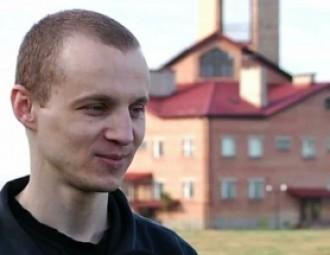Zmicier Dashkevich will stand trial for violating terms of police supervision

The politician forgot to come at the Pershamaiski district police station in Minsk on December 19.
Zmicier Dashkevich, co-chairman of an opposition youth organization Malady Front (Young Front), will stand new trial for violating terms of “preventive police supervision.” Police station issued a warning to the young politician on December 20, BelaPAN reports.
As Mr. Dashkevich told BelaPAN, he did not report to the station because he had simply forgotten that December 19 was the third Thursday of the month. He visited the station the following day and learned that the police had drawn up a charge sheet against him for his absence.
According to Mr. Dashkevich, people are normally spared punishment for failing to report to a police station on an appointed date for the first time. However, a police officer told Mr. Dashkevich that he had been ordered by his superiors to charge him.
The date of the trial is not yet known, said Mr. Dashkevich.
Police officers also questioned Mr. Dashkevich in connection with his appearance in a show recently broadcast by Polish-based pro-opposition channel Belsat TV.
Earlier this month, Mr. Dashkevich was notified that police supervision over him may be extended and tightened. The warning came shortly after he served a three-day jail sentence on a charge of disobeying lawful police orders after being arrested in downtown Minsk.
He was apprehended by police near the HUM department store on November 6 while he and other Malady Front members were collecting signatures to a petition for giving Minsk’s Lenin Street its original name of Frantsyskanskaya.
On August 28, Mr. Dashkevich was released from a prison in Hrodna after spending two years and eight months behind bars. He was arrested in Minsk on December 18, 2010, on the eve of a scheduled large-scale post-election demonstration, for allegedly beating up two passers-by.
Speaking during his trial, Mr. Dashkevich said that the incident was a provocation orchestrated by authorities and accused the two alleged victims of giving false testimony.
On March 24, 2011, he was sentenced to two years in a minimum-security correctional institution on a charge of "especially malicious hooliganism."
Mr. Dashkevich was repeatedly placed in disciplinary confinement and transferred to other prisons for allegedly violating prison rules. As a result of two trials, he had his prison term extended, and ended up in the cell-type prison in Hrodna.
-
03.01
-
07.10
-
22.09
-
17.08
-
12.08
-
30.09








































